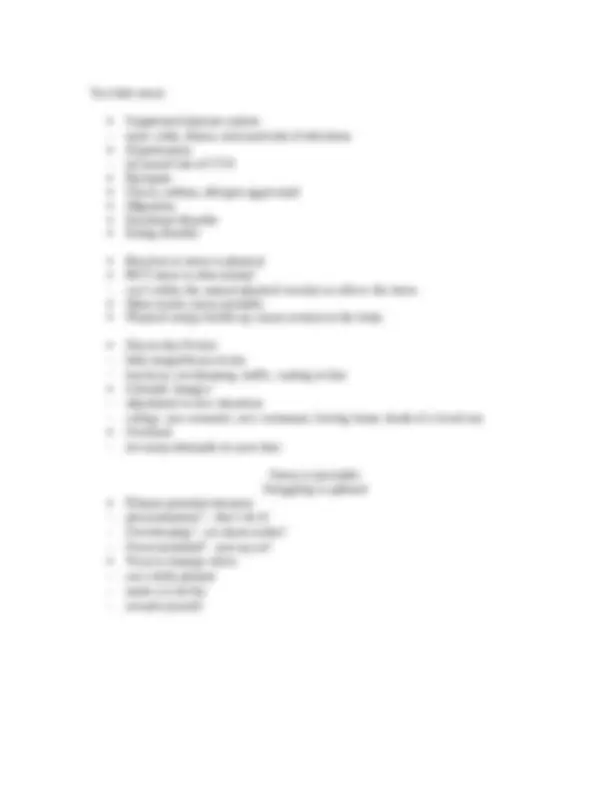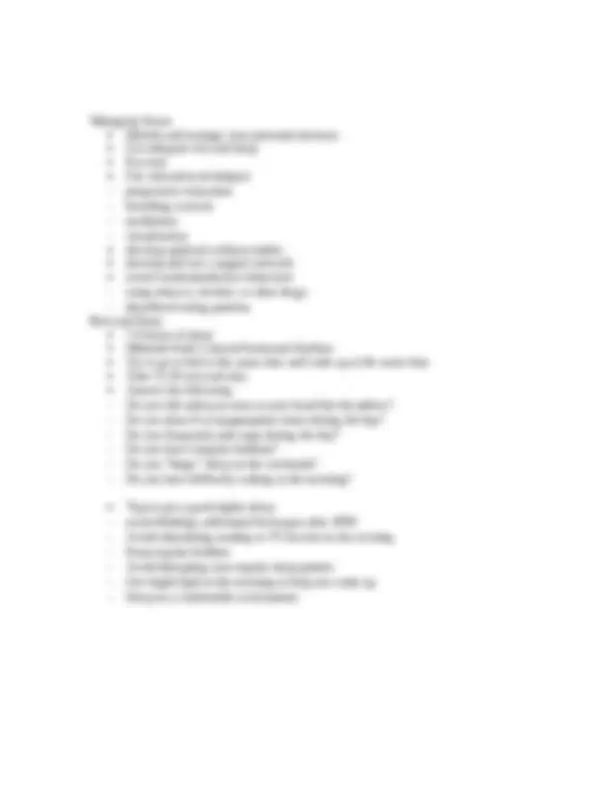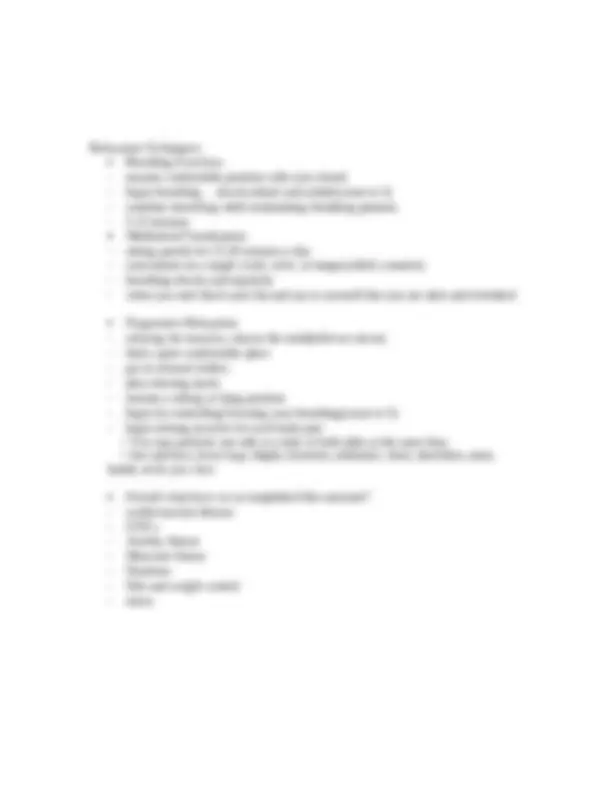





Study with the several resources on Docsity

Earn points by helping other students or get them with a premium plan


Prepare for your exams
Study with the several resources on Docsity

Earn points to download
Earn points by helping other students or get them with a premium plan
Community
Ask the community for help and clear up your study doubts
Discover the best universities in your country according to Docsity users
Free resources
Download our free guides on studying techniques, anxiety management strategies, and thesis advice from Docsity tutors
An in-depth exploration of stress, its various types, causes, effects, and management techniques. It covers the concepts of distress and eustress, acute and chronic stressors, the fight or flight response, and the general adaptation syndrome. Additionally, it discusses the importance of managing stress through adequate rest, exercise, relaxation techniques, and developing a support network.
Typology: Study notes
1 / 5

This page cannot be seen from the preview
Don't miss anything!




Stress defined
situation or event Types of stress: Distress Negative stress o Performance declines Eustress
Stressor
Acute stressors
Cumulative stressors
Chronic stressors
fight of flight response response to physical or mental stress preparation for physical action problem
General Adaptation Syndrome (GAS)
Stage I- Alarm: prepare for physical action
Stage II- Resistance
Stage III- Recovery or Exhaustion o Recovery = stress resolved o Exhaustion
Optimal stress
Too little stress
Too much stress
mental health physical health Signs of too much stress: Mood Physiological Irritable tension headaches Depressed overeating Aggressive more smoking Easily distracted upset stomach Forgetful High BP
Managing Stress Identify and manage your personal stressors Get adequate rest and sleep Exercise Use relaxation techniques
develop spiritual wellness habits develop and use a support network avoid counterproductive behaviors
Rest and Sleep 7-9 hours of sleep Maintain body’s natural hormonal rhythms Try to go to bed at the same time and wake up at the same time Take 15-30 rest each day Answer the following:
Tips to get a good nights sleep:
Relaxation Techniques Breathing Exercises
Meditation/Visualization
Progressive Relaxation